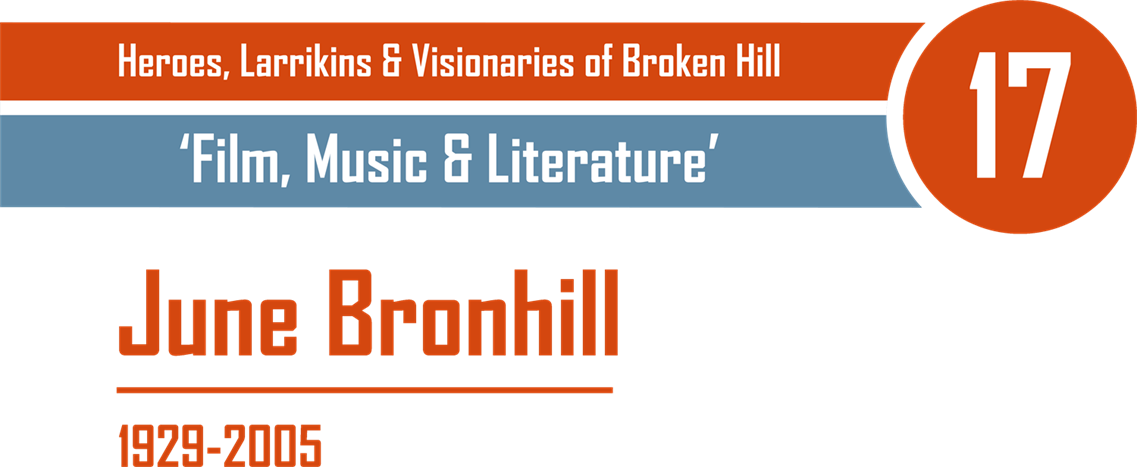June Bronhill

At the age of six, June Gough strutted on to the stage of Broken Hill’s Crystal Theatre in a white top hat and tails and sang as if she was already marked for stardom. She became an instant darling of the theatre and the town and, as a child, won multiple local singing competitions.
Aged nineteen, June left Broken Hill for Sydney where she studied singing with the renowned Marianne Mathy who, in 1950, encouraged her to compete in the Sun Aria Competition for emerging opera singers. June won the Sun Aria, and the people of Broken Hill raised the funds to send her to study in London with another famous singing tutor: Dino Borgiolli. As a mark of respect and gratitude for the town’s generosity, June Gough changed her name to June Bronhill to reflect the name Broken Hill.
June Bronhill’s first engagement in London was with at Saddler’s Wells Opera where, in 1954, she sang leads in Die Fledermaus, Rigoletto and The Merry Widow. The latter role was a triumph that became theatre history, an aria from the opera becoming known as ‘June’s Tune’. When the production of The Merry Widow toured Australia it was a box-office success wherever it played.
In a rich and brilliant career, June Bronhill played almost every opera lead worth singing, performed on the international stage, and was broadcast so much on BBC television and radio that her friends jokingly called it the Bronhill Broadcasting Corporation. In 1960, she returned to Broken Hill, her hometown and namesake, to a civic reception. In the 1980s, she survived breast cancer and kept working, playing Mrs Slocombe’ in the Australian version of Are You Being Served, and performing in The Sentimental Bloke and My Fair Lady in Sydney.
She performed in the city’s centenary celebration in 1983 and, when she passed away peacefully in her sleep in 2005, she had recorded more than 30 albums of arias, hymns, ballads, music hall songs and shows. She was remembered by the then-Prime Minister, John Howard as ‘a great artist and somebody we always identify with the cultural success of this country.’
Audio transcript available.